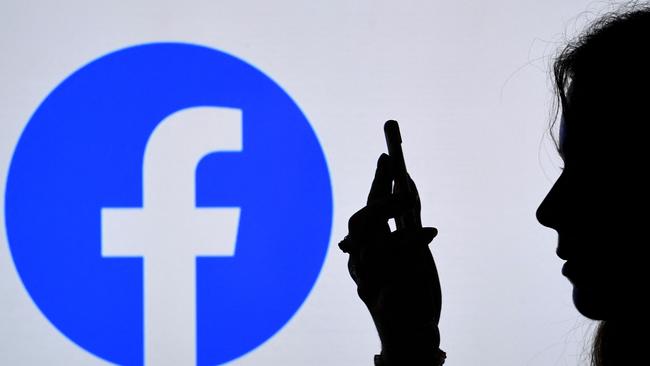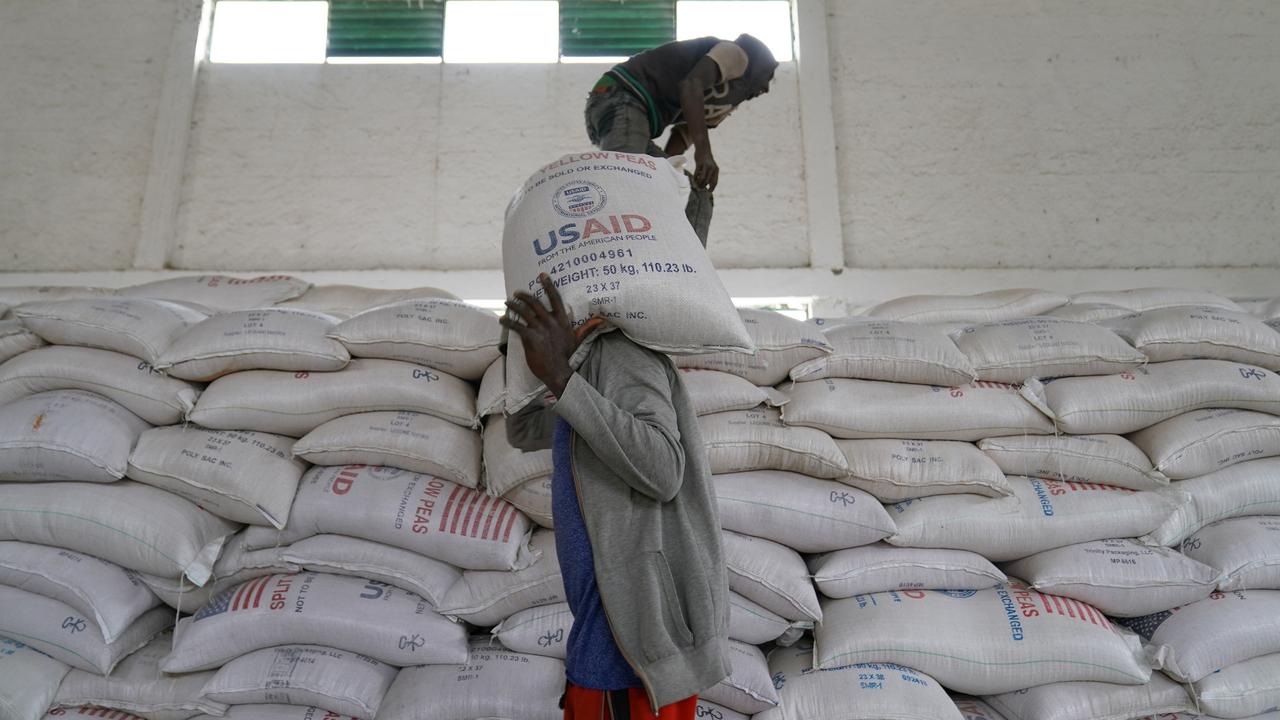Facebook deliberately caused havoc in Australia to influence new law, whistleblowers Say
Whistleblowers allege that the social-media giant deliberately created chaos during the pandemic in response to the country’s move to make platforms pay for content.

Last year when Facebook blocked news in Australia in response to potential legislation making platforms pay publishers for content, it also took down the pages of Australian hospitals, emergency services and charities. It publicly called the resulting chaos “inadvertent.” Internally, the pre-emptive strike was hailed as a strategic masterstroke. Facebook documents and testimony filed to US and Australian authorities by whistleblowers allege that the social-media giant deliberately created an overly broad and sloppy process to take down pages – allowing swathes of the Australian government and health services to be caught in its web just as the country was launching Covid vaccinations.
The goal, according to the whistleblowers and documents, was to exert maximum negotiating leverage over the Australian parliament, which was voting on the first law in the world that would require platforms such as Google and Facebook to pay news outlets for content.
Despite saying it was targeting only news outlets, the company deployed an algorithm for deciding what pages to take down that it knew was certain to affect more than publishers, according to the documents and people familiar with the matter.
It didn’t notify affected pages in advance they would be blocked or provide a system for them to appeal once they were.
The documents also show multiple Facebook employees tried to raise alarms about the impact and offer possible solutions, only to receive a minimal or delayed response from the leaders of the team in charge.
After five days that caused disorder throughout the country, Australia’s parliament amended the proposed law to the degree that, a year after its passage, its most onerous provisions haven’t been applied to Facebook or its parent company, Meta Platforms.
“We landed exactly where we wanted to,” wrote Campbell Brown, Facebook’s head of partnerships, who pressed for the company’s aggressive stance, in a congratulatory email to her team minutes after the Australian Senate voted to approve the watered-down bill at the end of February 2021.
Facebook Chief Executive Mark Zuckerberg and Chief Operating Officer Sheryl Sandberg chimed in with congratulations as well, with Ms Sandberg praising the “thoughtfulness of the strategy” and “precision of execution.” Facebook denied the moves were a negotiating tactic.
“The documents in question clearly show that we intended to exempt Australian government Pages from restrictions in an effort to minimise the impact of this misguided and harmful legislation,” said Facebook spokesman Andy Stone. “When we were unable to do so as intended due to a technical error, we apologised and worked to correct it. Any suggestion to the contrary is categorically and obviously false.” Facebook felt it needed a broad tool because the law didn’t define news, Mr Stone said.
People familiar with Facebook’s thinking said executives knew its process for classifying news for the removal of pages was so broad that it would likely hit government pages and other social services. They decided to take that route because Facebook was afraid a narrower definition might lead it to run afoul of the law, which contained a non-discrimination clause barring platforms from carrying links to some news publishers but not others, the people said.
Facebook also decided to remove pages before the law went into effect because it feared that publishers might take legal action to block their ability to remove news once the legislation became law, the people said.
Facebook’s hardball approach provides a glimpse of how future fights might go as similar legislation is introduced around the world. Last month, Canada introduced legislation modelled on Australia’s that would force Google and Facebook to engage in a process that could include “final offer” arbitration with publishers to decide on payment, a process that tends to favour publishers. Similar legislation is circulating in the US Congress.
The Wall Street Journal’s parent company, News Corp, was one of the publishers that forged deals with both Alphabet‘s Google and Facebook in Australia last year, and has been an outspoken advocate that such platforms pay publishers for their content.
The Facebook documents, reviewed by the Journal, have been submitted as part of whistleblower complaints filed with the US Department of Justice and the Australian Competition & Consumer Commission, or ACCC. The documents have also been shared with members of Congress.
Rod Sims, who was the chair of the Australian competition regulator at the time of Facebook’s news take-down, said he believed Facebook’s explanation at the time that the improper blocking of some pages was a mistake. “I gave them the benefit of the doubt that they just overshot,” he said. “It’s either a conspiracy they did it deliberately, or they got it wrong and mucked it up, and I was assuming the latter.” He said he doesn’t think last-minute changes won by the tech giant substantially weakened the bill, pointing to the many private deals to pay for content that Facebook and Google have forged with publishers in Australia since the legislation passed.
Mr Sims said his current view was that the Australian government got most of what it wanted while Facebook had to move its position from where it started. “It’s been a massive turnaround by them,” he said. “It’s interesting they’re patting themselves on the back.” The whistleblowers said the intent of the project – as a negotiating tactic – was unambiguous to those who worked on it. “It was clear this was not us complying with the law, but a hit on civic institutions and emergency services in Australia,” said one employee who worked on the project.
That employee is one of the whistleblowers close to the project represented by John Tye, the founder of Whistleblower Aid, the non-profit organisation that separately also represented Facebook whistleblower Frances Haugen, who made public documents that showed the company knows its platforms are riddled with dangerous flaws. In the complaints filed with regulators, Mr Tye alleges “a criminal conspiracy to obtain a thing of value, namely favourable regulatory treatment.” Australia has been at the vanguard of a global movement to shift the relationship between publishers and platforms. In 2019, the ACCC published a study blaming Facebook and Google’s business practices for weakening the country’s journalistic institutions, which it said “are important for the healthy functioning of the democratic process.” In July 2020, the ACCC published a legislative proposal aimed at fixing the issue by forcing platforms to negotiate payment with publishers under binding arbitration.
Both Facebook and Google fought the legislation, arguing the law as originally proposed was unworkable. Worried about the precedent the law would set, both effectively threatened some kind of Australian blackout, with Google warning it would shut down its search engine in the country and Facebook saying it would remove news from its platform in the country if the proposal became law.
Inside Facebook, according to the whistleblower complaints, the company assembled a team of about a dozen people to prepare to remove the news content. The team largely consisted of members of Facebook’s News team, which typically worked on products such as the Facebook News Tab, according to people familiar with the matter.
Instead of using Facebook’s long-established database of existing news publishers, called News Page Index, the newly assembled team developed a crude algorithmic news classifier that ensured more than just news would be caught in the net, according to documents and the people familiar with the matter. “If 60 per cent of [sic] more of a domain’s content shared on Facebook is classified as news, then the entire domain will be considered a news domain,” stated one internal document. The algorithm didn’t distinguish between pages of news producers and pages that shared news.
The Facebook documents in the complaints don’t explain why it didn’t use its News Page Index. A person familiar with the matter said that since news publishers had to opt in to the index, it wouldn’t have necessarily included every publisher.
The team also created a timeline for how it would roll out the take-down that showed it intended to launch before an appeals process was ready, the documents show. The move didn’t follow typical procedure, according to the people familiar with the take-down.
“An appeals process was being built, but the agreement was reached before it launched,” Mr Stone said.
As the legislation headed toward a vote in February 2021, Google backed off its threat to shut down its search engine in Australia and instead forged private deals with news publishers.
Google spokeswoman Jenn Crider said this week the company had worked with publishers for more than 20 years to address challenges in the industry. “We also support thoughtful regulation that will support a diverse, sustainable and innovative news ecosystem that respects the open web and free expression it enables,” she said.
On February 18, about a week ahead of the final vote in the Australian parliament, Facebook began taking down pages. Despite the months of warnings from Facebook that it might make such a move, the reality of the blackout took Australians by surprise.
In a blog post explaining the move, Facebook said it was shutting off Australians’ ability to share news on its platform and for international publishers to reach Australian audiences on it because “the proposed law fundamentally misunderstands the relationship between our platform and publishers who use it to share news content.”
The Wall Street Journal


